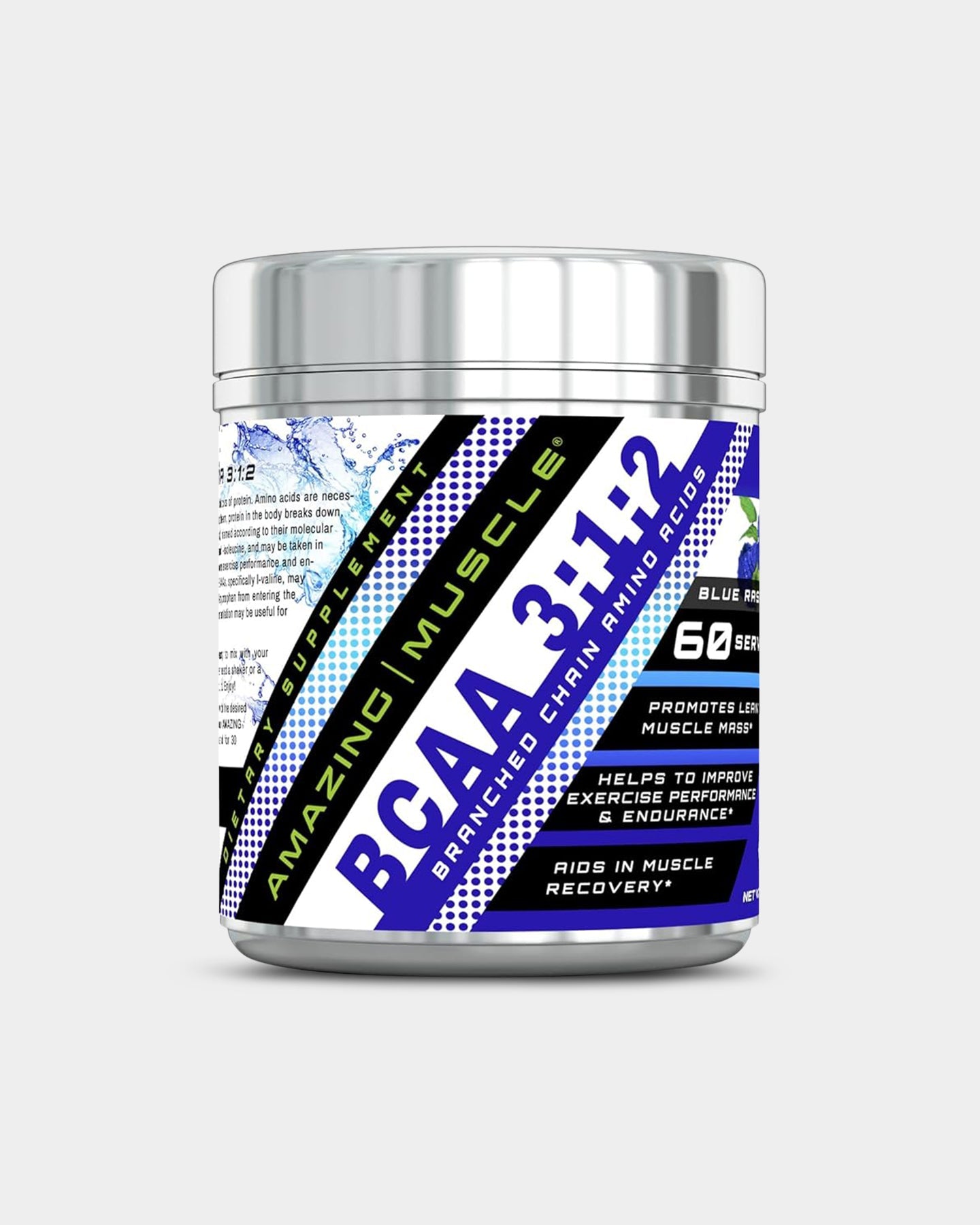Essential Guide to BCAA: Smart Ways to Enhance Your Fitness Results in 2025
Amino acids, specifically Branched-Chain Amino Acids (BCAAs), play a pivotal role in enhancing fitness results, particularly in the realms of muscle building and recovery. As the fitness community increasingly turns to BCAA supplements, understanding their benefits, mechanisms of action, and appropriate usage becomes essential for anyone aiming to boost their physical performance. This comprehensive guide explores the basics of BCAAs, their advantages, recommendations for use, and the latest insights into their efficacy in fostering better health and enhancing workout outcomes.
By integrating BCAAs into your fitness regimen, you can address muscle recovery, support weight loss, and potentially increase overall workout performance. Whether you’re a casual gym-goer or a seasoned athlete, knowing how and when to use BCAA supplements can lead to significant improvements in your training results.
This article is structured to take you through the fundamentals of BCAAs, various forms available, dosing guidelines, and real-world experiences from users. We aim to equip you with actionable insights to make informed choices for optimizing your fitness journey.
Understanding BCAA: What They Are and Their Benefits
Defining BCAA and Their Role in Fitness
Branched-Chain Amino Acids (BCAAs) comprise three essential amino acids: leucine, isoleucine, and valine. These amino acids are fundamental to protein synthesis and energy production during workouts. They are termed “branched-chain” due to their chemical structure, which differentiates them from other amino acids. Incorporating BCAAs in your diet can lead to enhanced muscle growth, reduced muscle soreness, and improved endurance.
BCAA Benefits for Muscle Recovery
One of the most significant advantages of BCAAs lies in their ability to reduce muscle soreness after intense workouts. When taken post-training, BCAAs can decrease muscle breakdown, allowing for quicker recovery. This effect is particularly beneficial for individuals participating in resistance training or sports that require high energy output, as it helps maintain performance levels from one workout to the next.
Enhancing Workout Performance with BCAAs
BCAAs have been shown to reduce fatigue during exercise, enabling longer and more productive workouts. By utilizing BCAAs before and during training, athletes can benefit from improved endurance and decreased perceived effort, leading to enhanced performance. This makes them a popular choice among bodybuilders, runners, and other fitness enthusiasts aiming to achieve their personal bests.
BCAAs and Weight Loss: Can They Help?
For those looking to lose weight, BCAAs can play a supportive role. Studies suggest that BCAAs may help in preserving muscle mass while reducing fat, which is crucial during a caloric deficit. Maintaining muscle during weight loss not only helps keep the metabolism high but also supports better body composition overall.
Different Forms of BCAAs: Which Should You Choose?
BCAAs come in various forms, including powders, capsules, and liquids. Each has its benefits: powders often provide a more concentrated dose and can be mixed with other supplements, while capsules may offer convenience on the go. Liquid formulations can be rapidly absorbed for quick effects. The choice largely depends on personal preference and lifestyle needs.
How to Use BCAAs Effectively
Best Times to Take BCAAs: Pre and Post-Workout
Timing your BCAA intake can significantly amplify their benefits. Consuming BCAAs before workouts can provide the necessary energy boost and help reduce fatigue, while post-workout intake can aid in recovery. Many experts recommend a dosage of 5–10 grams, depending on the intensity and duration of your training sessions.
Finding the Right BCAA Dosage for Your Goals
The optimal BCAA dosage varies among individuals. Beginners may start with lower doses to assess tolerance, while seasoned athletes might require higher amounts to support increased intensity. It’s essential to consult guidelines or professionals to tailor the dosage to your specific fitness goals.
Combining BCAAs with Other Supplements
BCAAs are often paired with other supplements for enhanced effects. Many athletes combine BCAAs with whey protein to maximize muscle synthesis, while others may mix them with creatine to boost performance further. Understanding the synergies between these supplements can lead to better results.
Common Misconceptions About BCAAs
Despite their popularity, several misconceptions surround BCAAs, such as the belief that they are unnecessary if one consumes enough protein. While it’s true that protein contains BCAAs, supplemental forms can provide a convenience and effective boost, particularly when fast recovery is desired.
BCAA Side Effects: What to Watch For
While BCAAs are generally considered safe for most people, some may experience side effects such as gastrointestinal discomfort or fatigue. It’s crucial to start with lower doses and monitor your body’s response. If you have underlying health conditions or are pregnant, consulting with a healthcare provider is advisable before starting any new supplementation.
BCAA Experience: Real-World Feedback
User Reviews: Success Stories with BCAAs
Many users report positive experiences with BCAA supplementation, highlighting improved recovery times and enhanced workout performance. Testimonials indicate that regular intake has led to visible gains in muscle mass and reductions in fatigue. These personal accounts provide valuable insights into the real-world efficacy of BCAAs.
Expert Opinions on BCAA Effectiveness
Experts in sports nutrition often emphasize the importance of BCAAs in athletic training and recovery. Nutritional scientists point out that when used appropriately, BCAAs can significantly impact performance and recovery, providing competitive athletes with an edge.
Case Studies: BCAAs in Competitive Sports
Several athletes have shared their experience of integrating BCAAs into their training regimens. Case studies show that BCAA supplementation leads to faster recovery periods and better training outcomes, especially in high-intensity sports. The real-world application of BCAAs demonstrates their practical benefits in competitive settings.
Making Informed Choices: Selecting the Right BCAA Product
When choosing a BCAA supplement, factors such as ingredient quality, dosage per serving, flavor, and user reviews should be considered. Opting for products that are transparent about their sourcing and have good manufacturing practices ensures you are investing in a quality supplement.
Cost Analysis: Finding Affordable BCAAs
BCAAs vary widely in price, from budget options to premium brands. Conducting a thorough market analysis can lead to identifying affordable options without compromising quality. Online shops often have competitive prices, and buying in bulk can provide additional savings.
Additional Considerations for BCAA Use
BCAAs for Specific Populations: Tailoring Use
Different demographic groups such as women, older adults, and vegans may have unique considerations regarding BCAA use. For instance, women may need to adjust their dosages slightly, while vegans can look for plant-based BCAA alternatives. Understanding these nuances can lead to better compliance and outcomes.
Research Insights: BCAAs and Athletic Performance
Recent studies have further solidified the role of BCAAs in enhancing athletic performance. Research shows that BCAAs help in reducing exercise-induced muscle damage, leading to improved recovery and performance in subsequent training sessions. Keeping abreast of the latest findings can guide your supplementation strategies.
Focusing on Overall Nutrition: BCAA as Part of a Holistic Approach
While BCAAs are beneficial, they should not be viewed as a standalone solution. A well-rounded diet, rich in whole foods and balanced nutrients, is crucial. Incorporating BCAAs into a comprehensive nutrition plan enhances their effectiveness while supporting overall health.
Conclusion: BCAA as a Tool for Success
BCAAs are a powerful tool in the fitness arsenal, providing measurable benefits in muscle recovery, workout performance, and overall health. As we look forward to 2025, the insights gained from recent research will continue to shape effective BCAA usage strategies. Whether you’re looking to build muscle, lose weight, or enhance your training, understanding and using BCAAs effectively can yield significant fitness results. For more in-depth discussions on enhancing your fitness journey, explore here and here.


